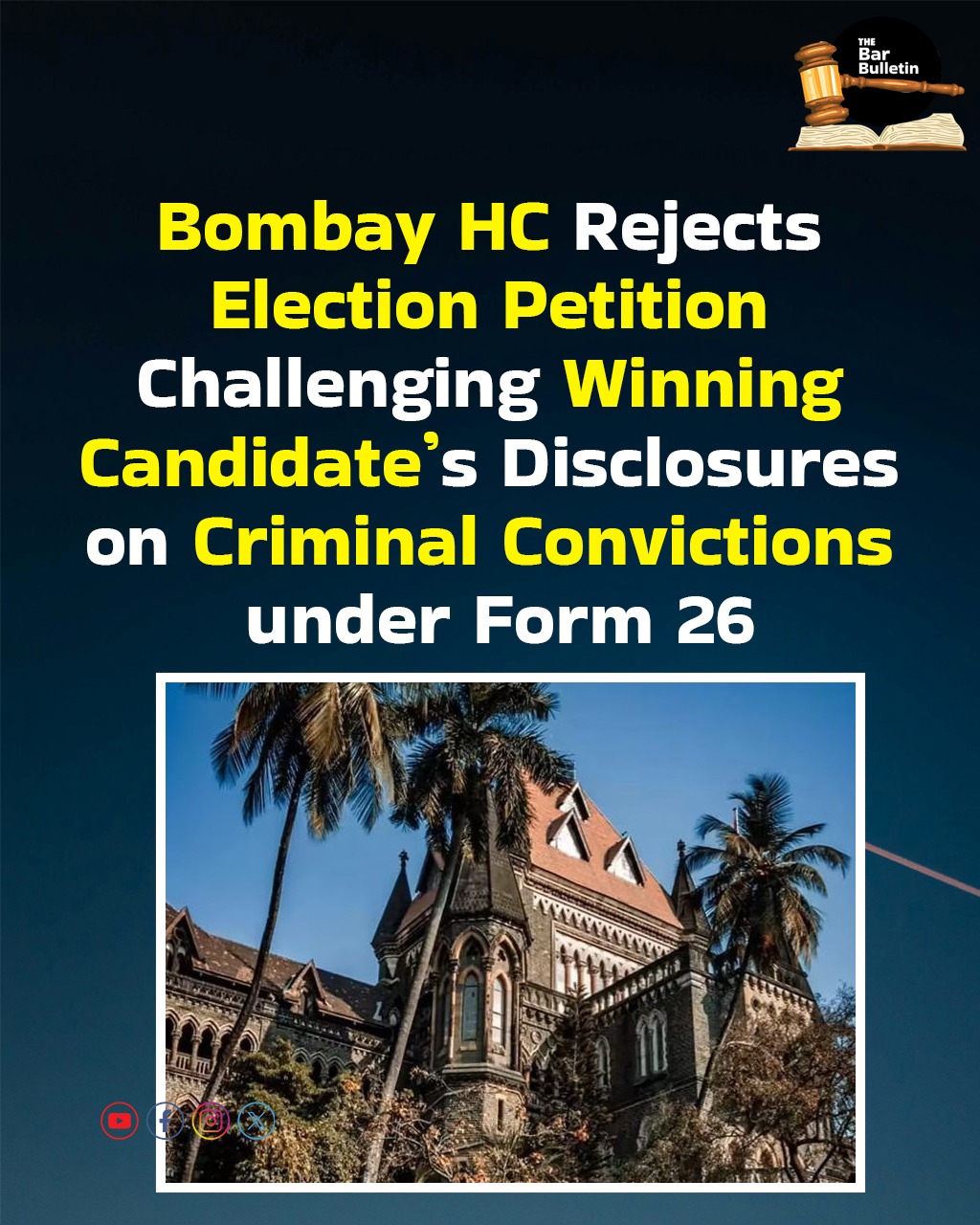The Bombay High Court allowed the respondents’ application under Order VII Rule 11 of Civil Procedure Code (CPC) and dismissed the election petition on grounds of non-maintainability, holding that the petitioner failed to establish a cause of action for invalidating the election under the Representation of the People Act, 1951 (RPA).
The petition challenged the election of Naresh Ganpat Mhaske (candidate) to Parliament from Thane constituency, alleging improper disclosure of criminal antecedents in Form 26 filed at nomination. Despite a past conviction by the trial court upheld on appeal, the candidate did not disclose the conviction in the nomination affidavit. The petitioner alleged that this constituted suppression of material facts and sought election’s annulment under Sections 33, 36, 100 and cognate provisions of the RPA.
The case involved interpretation of disclosure requirements prescribed in Form 26 (amended 2018) and Section 33A RPA, alongside relevant Election Commission directions.
Petitioner relied on the right of voters to know the criminal background of candidates, asserting that non-disclosure cheated the electorate. Respondent argued that under Section 33A RPA only convictions leading to imprisonment of one year or more require disclosure, and as the candidate was released on probation, the disclosure was correctly omitted. It was contended Form 26 cannot require disclosures beyond statutory provisions upheld by the Supreme Court.
The Bench comprising Justice R.I. Chagla analysed the legislative framework, highlighting that Section 33A(1)(ii) RPA mandates disclosure of convictions where imprisonment exceeds one year. The order observed the Supreme Court’s consistent rulings affirming this threshold and upheld the principle that Form 26’s requirements cannot exceed the parent statute’s mandate.
The Court found that since the candidate’s imprisonment term was suspended under probation, no statutory duty to disclose arose. Petitioner failed to plead or demonstrate how the alleged non-disclosure materially affected election result as required under Section 100. The Court also underscored that the submission of Form 26 marked “Not Applicable” was not false within the statutory context.
In result, the Election Petition was dismissed at the preliminary stage under Order VII Rule 11 CPC for want of cause of action. The judgment reiterates that the right to information must be balanced with legislative provisions and electoral regulation. It confirmed stringent requirements for maintainability of election petitions on such grounds. Petition was noted as possibly filed with ulterior motives and significant delay, further undermining merit.
The Court discharged the rule sought by the petitioner, sent back electoral records, and ordered costs against the petitioner if pending.
Cases relied on:
1. People’s Union for Civil Liberties vs. Union of India, (2003) 4 SCC 399
2. Union of India vs. Association for Democratic Reform, (2002) 5 SCC 294
3. Krishnamoorthy vs. Sivakumar, (2015) 3 SCC 467
4. Lok Prahari vs. Union of India, (2018) 4 SCC 699
5. Public Interest Foundation vs. Union of India, (2019) 3 SCC 224
6. Satish Ukey vs. Devendra Gangadhar Fadanvis, (2019) 9 SCC 1
Appearances:
Mr. Darius Khambata, Senior Counsel, Mr. Pankaj Savant, Senior Counsel, Ms. Shreenandini Mukhopadhyay, Ms. Joshna D’Souza i/b. Mr. Sanjay Gawde for the Petitioner.
Mr. Vikram Nankani, Senior Counsel, Mr. Chirag Shah, Mr. Vishal Acharya, Mr. Shyamsundar Jadhav, Mr. Bhavya Shah and Mr. Mehul Talera i/b. Mr. Chirag Shah for Respondent No.1 / Applicant in AEP No.30947 of 2024.
Mr. Hare Krishna Mishra i/b. Law Global for Respondent No.14 and Applicant in AEP No.31834 of 2024.
![]()

